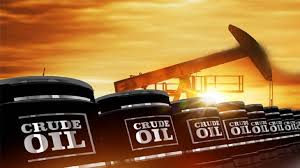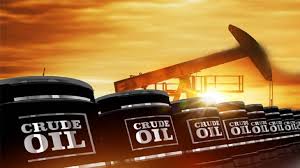
One of the biggest oil production cuts this decade is set to be implemented by the oil cartel Organization of the Petroleum Exporting Countries (Opec) and its allies including Russia on Thursday with the aim of further supporting the global crude prices and avoid oversupply in the global market, said reports.
Opec is set to meet on Thursday while Russia and some other oil producing countries are set to hold a meeting the next day.
According to reports, the oil producers at Opec are contemplating increasing the present cut levels at 1.2 million barrels per day by another more than 400,000 bpd. The current production cuts come to an end in March next year and reports said that the oil producers want to extend the new cuts till June next year or till the end of next year.
Since 2017, cuts in production of crude have been implemented by Russia and its allied oil producing countries so that the increased shale oil production from the United States can be countered. US has now become the largest oil producer of the worlds.
It is feared that next year there can be an oversupply of crude in the global market because of an increase in production in the United States as well as some of the other non-OPEC producers such as Brazil and Norway.
US president Donald Trump has been irritated in the past by OPEC’s actions. Trump has been demanding that Saudi Arabia, the de-facto leader of Opec, bring down crude oil prices if the country wants to gain access to military support from the US against its arch rival Iran.
And even though little has been said by Trump about Opec in the last few months, that might not be the case in 2020 if there is a rise in oil and gasoline prices because that is a very sensitive issue for Trump politically going into the 2020 presidential elections in November next year.
Opec’s de facto leader Saudi Arabia was supporting cuts of 1.6 million bpd, or 1.6% of global demand said Iraq, the second largest producer of the oil cartel.
While saying that the Saudi Arabia has a good feeling about the Opec’s meeting, Saudi Energy Minister Prince Abdulaziz bin Salman did not give any further details on policy matters of the oil cartel.
Russia-Saudi energy cooperation should continue, the ministry of Russian Energy Minister Alexander Novak told Prince Abdulaziz on Thursday.
Iran would support a deeper reduction in oil production of that is what was agreed upon by the other countries, said Iranian Oil Minister Bijan Zangeneh. Iran is excluded from the cuts.
Higher and steady oil prices in the global market is critical for Saudi Arabia because of its need for funds to support its budget revenue as well as for the desired success of the launch of the IPO of the Saudi state-owned oil giant Saudi Aramco.
Over the past year, the price of oil has been steady around $50-$75 per barrel because of the actions initiated by Opec.
(Source:www.economictimes.com)
Opec is set to meet on Thursday while Russia and some other oil producing countries are set to hold a meeting the next day.
According to reports, the oil producers at Opec are contemplating increasing the present cut levels at 1.2 million barrels per day by another more than 400,000 bpd. The current production cuts come to an end in March next year and reports said that the oil producers want to extend the new cuts till June next year or till the end of next year.
Since 2017, cuts in production of crude have been implemented by Russia and its allied oil producing countries so that the increased shale oil production from the United States can be countered. US has now become the largest oil producer of the worlds.
It is feared that next year there can be an oversupply of crude in the global market because of an increase in production in the United States as well as some of the other non-OPEC producers such as Brazil and Norway.
US president Donald Trump has been irritated in the past by OPEC’s actions. Trump has been demanding that Saudi Arabia, the de-facto leader of Opec, bring down crude oil prices if the country wants to gain access to military support from the US against its arch rival Iran.
And even though little has been said by Trump about Opec in the last few months, that might not be the case in 2020 if there is a rise in oil and gasoline prices because that is a very sensitive issue for Trump politically going into the 2020 presidential elections in November next year.
Opec’s de facto leader Saudi Arabia was supporting cuts of 1.6 million bpd, or 1.6% of global demand said Iraq, the second largest producer of the oil cartel.
While saying that the Saudi Arabia has a good feeling about the Opec’s meeting, Saudi Energy Minister Prince Abdulaziz bin Salman did not give any further details on policy matters of the oil cartel.
Russia-Saudi energy cooperation should continue, the ministry of Russian Energy Minister Alexander Novak told Prince Abdulaziz on Thursday.
Iran would support a deeper reduction in oil production of that is what was agreed upon by the other countries, said Iranian Oil Minister Bijan Zangeneh. Iran is excluded from the cuts.
Higher and steady oil prices in the global market is critical for Saudi Arabia because of its need for funds to support its budget revenue as well as for the desired success of the launch of the IPO of the Saudi state-owned oil giant Saudi Aramco.
Over the past year, the price of oil has been steady around $50-$75 per barrel because of the actions initiated by Opec.
(Source:www.economictimes.com)





